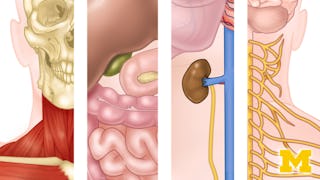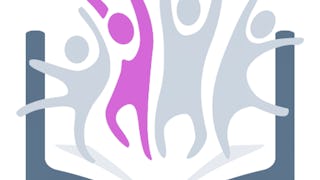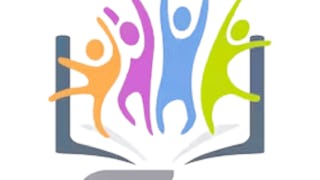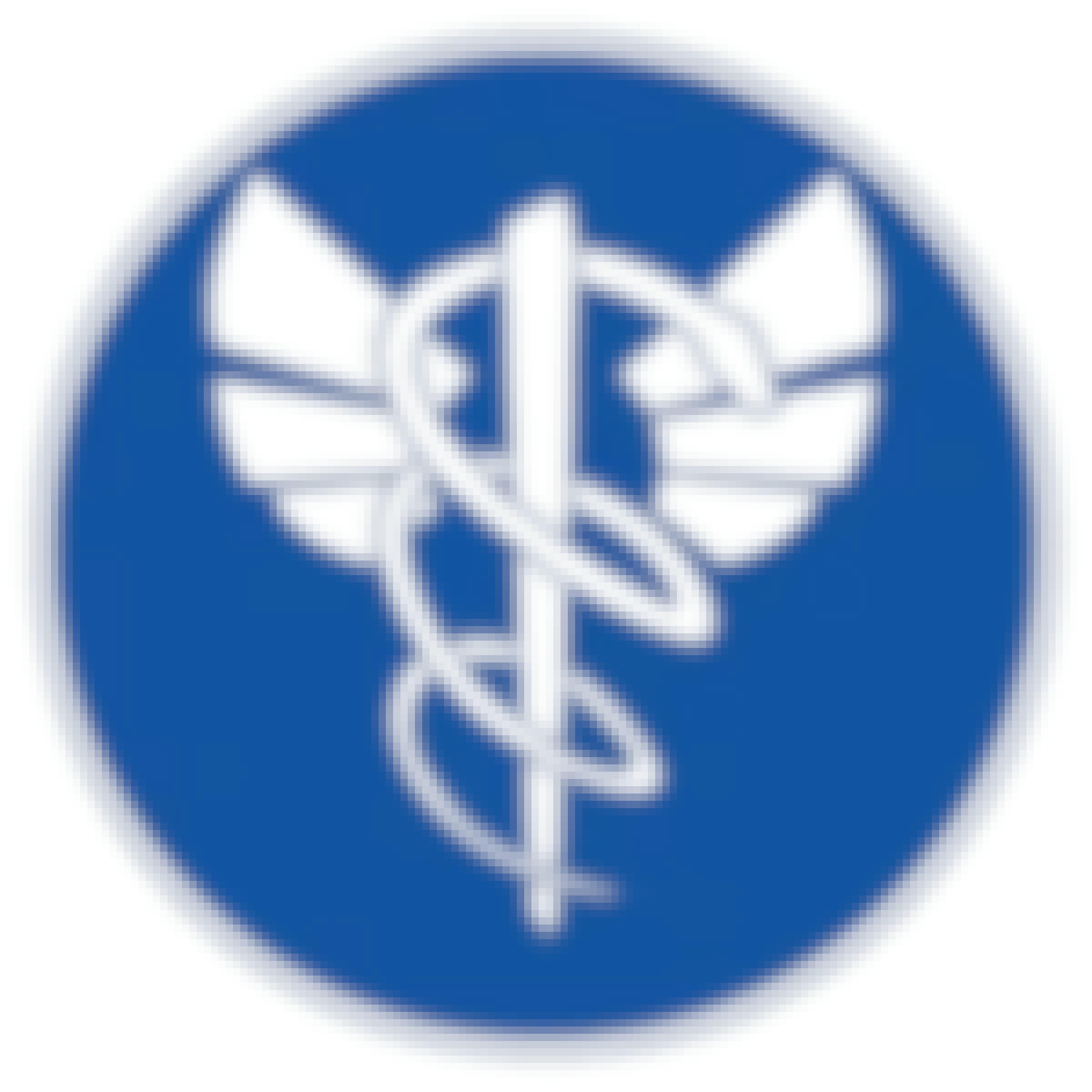- Browse
- Pediatrics
Pediatrics Courses
Pediatrics courses can help you learn child development, immunization practices, and common pediatric illnesses. You can build skills in effective communication with children and families, conducting developmental screenings, and managing pediatric emergencies. Many courses introduce tools such as growth charts, vaccination schedules, and electronic health records, that support tracking patient progress and ensuring comprehensive care.
Popular Pediatrics Courses and Certifications
 Status: FreeFreeU
Status: FreeFreeUUtrecht University
Skills you'll gain: Child Development, Human Development, Empathy & Emotional Intelligence, Speech Language Pathology, Systems Thinking, Pediatrics, Research, Neurology, Cultural Diversity
4.7·Rating, 4.7 out of 5 stars483 reviewsBeginner · Course · 1 - 3 Months
 Status: Free TrialFree TrialU
Status: Free TrialFree TrialUUniversity of Michigan
Skills you'll gain: Human Musculoskeletal System, Anatomy, Endocrinology, Pulmonology, Cardiology, Respiration, Hematology, Obstetrics And Gynecology, Orthopedics, Neurology, Nephrology, Kinesiology, Physiology, Urology, Medical Imaging, Sports Medicine, Biology, Medical Terminology, Cell Biology
4.8·Rating, 4.8 out of 5 stars4K reviewsBeginner · Specialization · 3 - 6 Months
 Status: Free TrialFree TrialU
Status: Free TrialFree TrialUUniversity of Colorado System
Skills you'll gain: Autism Spectrum Disorders, Mental and Behavioral Health Specialties, Communication Disorders, Neurology, School Psychology, Patient Evaluation, Disabilities, Special Education, Pediatrics, Child Development, Rehabilitation, Diagnostic Tests, Clinical Assessment, Mental Health, Individualized Education Programs (IEP), Occupational Therapy, Psychological Evaluations
4.8·Rating, 4.8 out of 5 stars1.7K reviewsMixed · Course · 1 - 4 Weeks
 Status: Free TrialFree TrialU
Status: Free TrialFree TrialUUniversity of Colorado System
Skills you'll gain: Postpartum Care, Infant Care, Respiratory Care, Neonatal Intensive Care Unit, Patient Evaluation, Pulmonology, Preventative Care, Child Health, Maternal Health, Health Assessment, Vital Signs, Pediatric Nursing, Family Support, Cardiology, Clinical Assessment, Pediatrics, Patient Observation, Child Development, Parent Communication, Nutrition and Diet
4.8·Rating, 4.8 out of 5 stars1.1K reviewsBeginner · Specialization · 3 - 6 Months
 Status: Free TrialFree TrialR
Status: Free TrialFree TrialRRice University
Skills you'll gain: Medical Terminology, Medical History Documentation, Pulmonology, Cardiology, Electronic Medical Record System, Medical Records, Endocrinology, Human Musculoskeletal System, Orthopedics, Obstetrics And Gynecology, Neurology, Gynecology, Urology, Hematology, Anatomy, Immunology, Diagnostic Tests, Patient Treatment, Physiology, Communication
4.9·Rating, 4.9 out of 5 stars993 reviewsBeginner · Specialization · 3 - 6 Months
 Status: Free TrialFree TrialU
Status: Free TrialFree TrialUUniversity of Colorado System
Skills you'll gain: Autism Spectrum Disorders, Individualized Education Programs (IEP), Special Education, Nutrition Education, Community Health, School Psychology, Chronic Diseases, Case Studies, Student Support and Services, Nutrition and Diet, Empathy & Emotional Intelligence, Health Education, Health Promotion, School Counseling, Mental and Behavioral Health Specialties, Parent Communication, Care Management, Communication Disorders, Neurology, Behavioral Health
4.8·Rating, 4.8 out of 5 stars3.5K reviewsBeginner · Specialization · 3 - 6 Months
What brings you to Coursera today?
 Status: Free TrialFree TrialJ
Status: Free TrialFree TrialJJohns Hopkins University
Skills you'll gain: Patient Safety, Design Thinking, Change Management, Institutional Review Board (IRB), Leadership, Conflict Management, Performance Measurement, Systems Thinking, Healthcare Project Management, Solution Design, Health Systems, Data Analysis, Corrective and Preventive Action (CAPA), Value-Based Care, Continuous Quality Improvement (CQI), Quality Improvement, Risk Management, Initiative and Leadership, Data Analysis Software, Patient-centered Care
4.8·Rating, 4.8 out of 5 stars1.9K reviewsBeginner · Specialization · 3 - 6 Months
 Status: Free TrialFree Trial
Status: Free TrialFree TrialSkills you'll gain: Phlebotomy, Blood Collection, Urinalysis, Patient Education And Counseling, Geriatrics, Electocardiography, Pediatrics, Specimen Collection, Cardiology, Medical Assistance, Patient Preparation, Diagnostic Tests, Basic Patient Care, Patient Communication, Infection Control
4.7·Rating, 4.7 out of 5 stars11 reviewsBeginner · Course · 1 - 4 Weeks
 Status: Free TrialFree Trial
Status: Free TrialFree TrialSkills you'll gain: Good Clinical Practices (GCP), Informed Consent, Institutional Review Board (IRB), Clinical Research Ethics, Clinical Research Coordination, Clinical Research, Clinical Trials, Clinical Data Management, Drug Development, Patient Education And Counseling, Record Keeping, Clinical Documentation, Regulatory Compliance, Document Management, Health Equity, Electronic Medical Record, Patient Communication, Risk Management
4.7·Rating, 4.7 out of 5 stars718 reviewsBeginner · Specialization · 1 - 3 Months
 Status: Free TrialFree TrialU
Status: Free TrialFree TrialUUniversity of Colorado System
Skills you'll gain: Medical History Documentation, Child Health, Childbirth, Airway Management, Neonatal Intensive Care Unit, Maternal Health, Emergency Medical Services, Emergency Medicine, Pediatrics, Pediatric Nursing, Patient Transport, Obstetrics And Gynecology, Patient Evaluation, Environment Health And Safety, Health Assessment, Pathology, Vital Signs, Clinical Assessment
4.8·Rating, 4.8 out of 5 stars312 reviewsBeginner · Course · 1 - 4 Weeks
 Status: PreviewPreviewU
Status: PreviewPreviewUUniversity of Michigan
Skills you'll gain: Speech Language Pathology, Pediatrics, Speech Therapy, Communication Disorders, Patient Evaluation, Child Health, Disabilities, Childhood Education and Development, Public Health, Child Development, Rehabilitation, Diagnostic Tests, Patient Treatment, Special Education, Clinical Assessment, Patient Referral, Anatomy
4.9·Rating, 4.9 out of 5 stars238 reviewsIntermediate · Course · 1 - 3 Months
 Status: Free TrialFree TrialR
Status: Free TrialFree TrialRRice University
Skills you'll gain: Pulmonology, Obstetrics And Gynecology, Respiration, Anatomy, Urology, Cardiology, Urinalysis, Immunology, Hematology, Hemodynamics, Nephrology, Capillary, Gynecology, Pathology, Patient Evaluation, Physiology, Clinical Nutrition, Medical Terminology, Biology, Lifelong Learning
4.8·Rating, 4.8 out of 5 stars39 reviewsIntermediate · Specialization · 3 - 6 Months
In summary, here are 10 of our most popular pediatrics courses
- Understanding child development: from synapse to society: Utrecht University
- Anatomy: University of Michigan
- Managing ADHD, Autism, Learning Disabilities, and Concussion in School: University of Colorado System
- Newborn Baby Care: University of Colorado System
- Medical Terminology: Rice University
- School Health for Children and Adolescents: University of Colorado System
- Patient Safety: Johns Hopkins University
- Pediatric, Geriatric, Phlebotomy, and Cardiology Assisting: MedCerts
- Clinical Trials: Good Clinical Practice: Novartis
- Emergency Care: Pregnancy, Infants, and Children: University of Colorado System
Frequently Asked Questions about Pediatrics
Pediatrics is the branch of medicine that focuses on the health and medical care of infants, children, and adolescents. It is crucial because it addresses the unique physical, emotional, and social needs of young patients, ensuring they grow up healthy and develop properly. Pediatricians play a vital role in diagnosing and treating various conditions, from common illnesses to complex diseases, while also providing preventive care and guidance to families.
A career in pediatrics can lead to various roles, including pediatrician, pediatric nurse, child psychologist, and pediatric physical therapist. Additionally, there are opportunities in research, public health, and education related to child health. These positions allow professionals to make a significant impact on children's lives, helping them achieve optimal health and well-being.
To pursue a career in pediatrics, you need a combination of medical knowledge, communication skills, and empathy. Key skills include understanding child development, diagnosing illnesses, and providing effective treatment plans. Additionally, strong interpersonal skills are essential for building trust with young patients and their families, as well as collaborating with other healthcare professionals.
Some of the best online pediatrics courses cover topics such as child development, pediatric nutrition, and common childhood illnesses. These courses often include practical case studies and interactive content to enhance learning. You can explore options that fit your schedule and learning style, providing flexibility in your educational journey.
To learn pediatrics, start by exploring online courses that cover the fundamentals of child health and development. Engage with interactive materials, participate in discussions, and apply your knowledge through practical exercises. Additionally, consider seeking mentorship or volunteering in pediatric settings to gain real-world experience and insights.
Pediatrics courses typically cover a range of topics, including child growth and development, pediatric diseases, immunizations, nutrition, and mental health. Courses may also address the social determinants of health affecting children and families, providing a comprehensive understanding of the factors influencing pediatric care.
For training and upskilling employees in pediatrics, courses that focus on clinical skills, child psychology, and family-centered care are particularly beneficial. These programs can enhance the knowledge and capabilities of healthcare professionals, ensuring they are well-equipped to provide high-quality care to children and their families.










